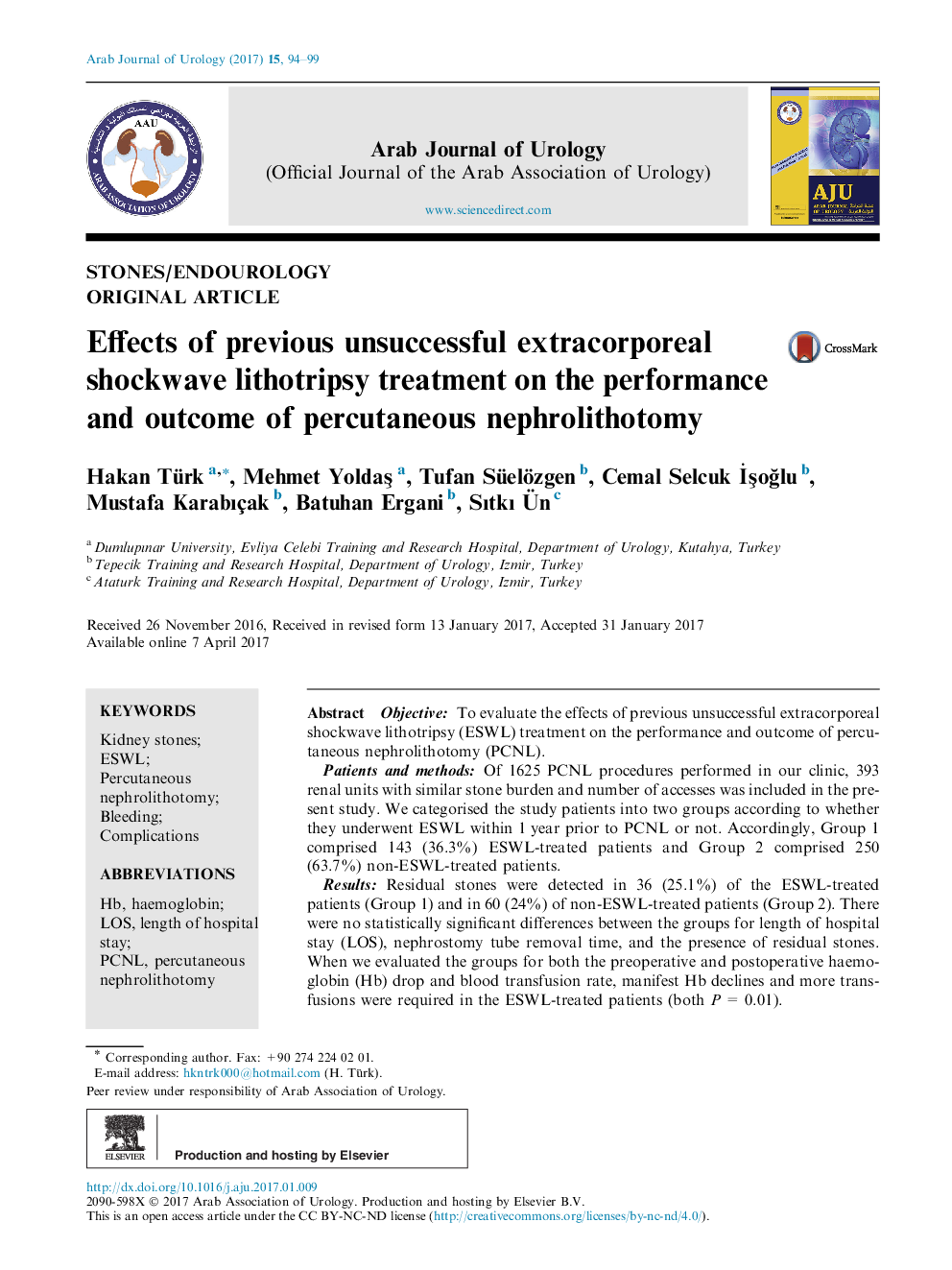| Article ID | Journal | Published Year | Pages | File Type |
|---|---|---|---|---|
| 5729599 | Arab Journal of Urology | 2017 | 6 Pages |
ObjectiveTo evaluate the effects of previous unsuccessful extracorporeal shockwave lithotripsy (ESWL) treatment on the performance and outcome of percutaneous nephrolithotomy (PCNL).Patients and methodsOf 1625 PCNL procedures performed in our clinic, 393 renal units with similar stone burden and number of accesses was included in the present study. We categorised the study patients into two groups according to whether they underwent ESWL within 1Â year prior to PCNL or not. Accordingly, Group 1 comprised 143 (36.3%) ESWL-treated patients and Group 2 comprised 250 (63.7%) non-ESWL-treated patients.ResultsResidual stones were detected in 36 (25.1%) of the ESWL-treated patients (Group 1) and in 60 (24%) of non-ESWL-treated patients (Group 2). There were no statistically significant differences between the groups for length of hospital stay (LOS), nephrostomy tube removal time, and the presence of residual stones. When we evaluated the groups for both the preoperative and postoperative haemoglobin (Hb) drop and blood transfusion rate, manifest Hb declines and more transfusions were required in the ESWL-treated patients (both PÂ =Â 0.01).ConclusionsIn our study, previous ESWL treatment had no influence on the PCNL stone-free rate, operation time, incidence of postoperative complications, and LOS, in patients with similar stone burdens. However, bleeding during PCNL was more prevalent in the ESWL-treated patients, so close attention should be paid to bleeding in patients who have been pretreated with ESWL.
